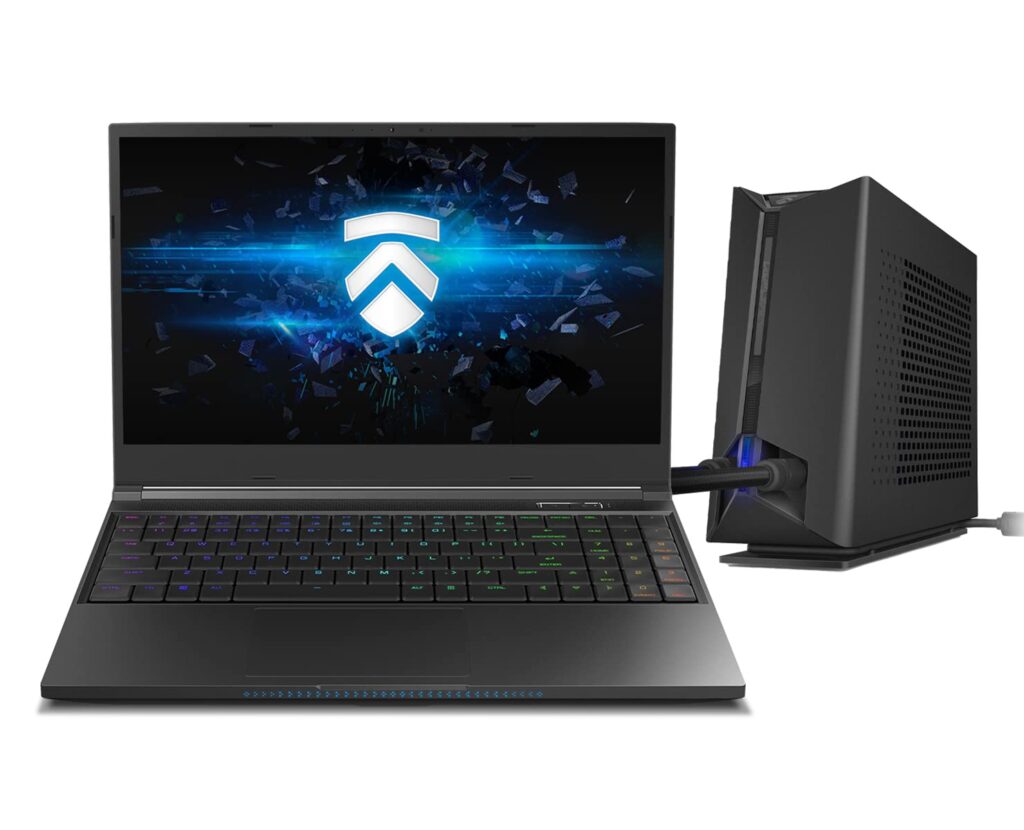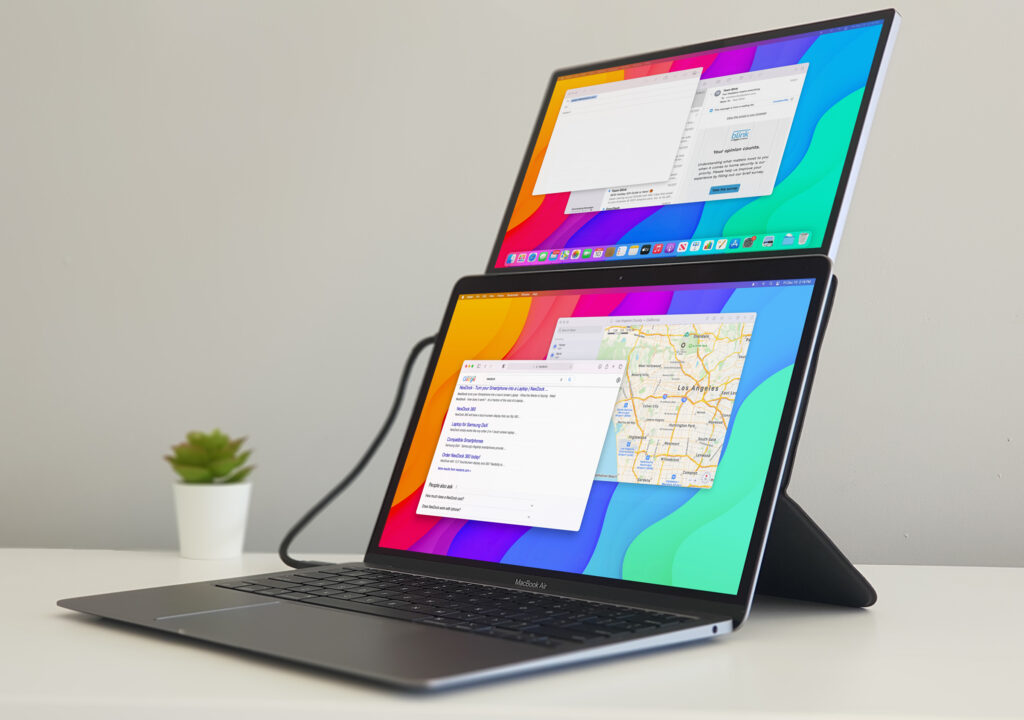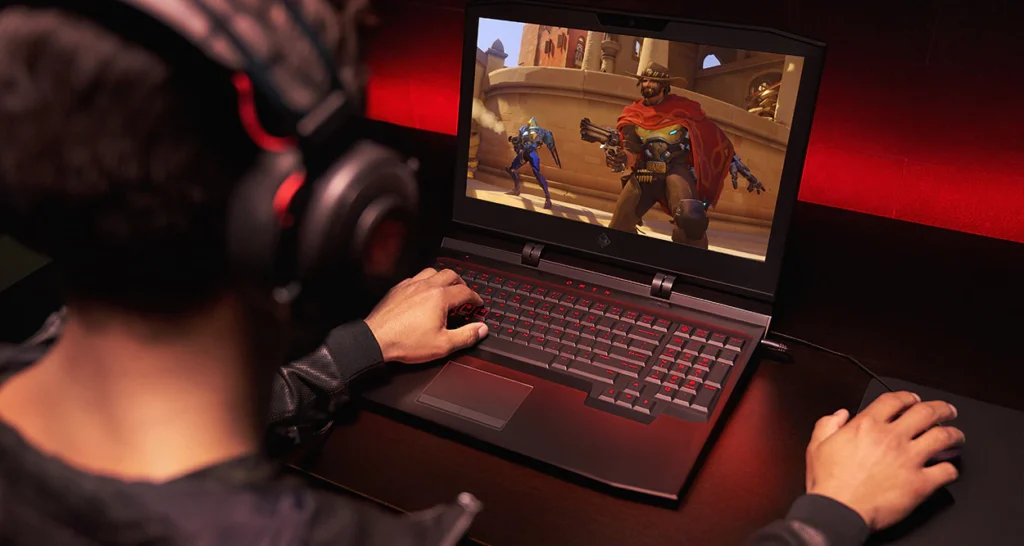A powerful cooling system is crucial for optimal performance and longevity for gaming laptops. With high-performance components generating significant heat, it’s essential to effectively dissipate that heat to prevent overheating and ensure smooth gameplay. This article will explore different cooling systems, discuss their pros and cons, and provide guidance on choosing the right one for your gaming laptop while considering noise levels and budget.
Types of Cooling Systems
Gaming laptops can use various cooling systems to keep temperatures in check while playing high-performance games. The most common types of cooling systems are air cooling, liquid cooling, vapor chamber cooling, and heat pipe cooling. Air cooling systems utilize fans to draw cool air from outside the laptop and push hot air out, while liquid cooling systems circulate coolant through tubes to dissipate heat. Vapor chamber cooling is a more advanced system often found in high-end gaming laptops, using the phase transition of a liquid to dissipate heat. Lastly, heat pipe cooling systems transfer heat through a metal component. Each cooling system has benefits and drawbacks, which we will explore further in the following sections.
Air Cooling
Air cooling is the most common cooling system found in gaming laptops, relying on fans to draw in cool air and push out hot air. While effective and affordable, air cooling systems can be noisier and less efficient than other options, especially in thinner laptops.
Liquid Cooling

Source: amazon.com
Liquid cooling systems are another practical option for improving laptop cooling. These systems circulate coolant through tubes to absorb and dissipate heat, allowing for a quieter and cooler gaming experience. However, they’re usually found in high-end laptops due to their complexity and cost.
Vapor Chamber Cooling
Vapor chamber cooling is another efficient method that has become popular in high-performance gaming laptops. It employs a sealed chamber containing a liquid, which turns into vapor to absorb heat and then condenses back into liquid, effectively dissipating heat from the components.
Heat Pipe Cooling
Heat pipe cooling is another effective method for dispersing heat in gaming laptops. This system utilizes heat pipes connected to a heatsink and a fan, transferring heat away from the processors. While not as advanced as liquid or vapor chamber cooling, it still performs well in dissipating heat, helping to prevent overheating during intense gaming sessions.
How to Choose the Best Cooling System for a Gaming Laptop
To choose the best cooling system for your gaming laptop, consider factors like performance requirements, noise levels, budget, and size. Liquid or vapor chamber cooling systems are the most effective for the highest performance needs. But if you’re sensitive to noise levels, air cooling systems typically offer quieter operation.
Your budget must be considered, as liquid-based cooling systems can be more expensive. Size and portability are also essential; if you prefer compact laptops, heat pipe or air cooling setups will be more suitable due to their minimal configuration. Balancing these factors and individual preferences will help determine which cooling system is best suited for your gaming laptop.
Performance Requirements
To ensure the best performance, consider your gaming preferences and workload demands. High-performance gaming and CPU-intensive tasks require more advanced cooling solutions like liquid or vapor chambers, while moderate gamers can opt for air or heat pipe cooling systems.
Noise Level Preferences
Consider your noise level preferences when choosing a cooling system. Liquid cooling is typically quieter than air cooling but may be more expensive. Find a balance between efficient cooling and a tolerable noise level that suits your gaming environment.
Budget Considerations
You should take into consideration your budget when choosing a cooling system. Air cooling is generally more affordable, while liquid and vapor chamber cooling are more expensive. Weigh the performance benefits and noise level preferences against your budget to make the best choice for your gaming laptop.
Laptop Size and Portability

Source: businesswire.com
Lastly, consider your laptop’s size and portability; certain cooling systems may require bigger chassis or make the laptop heavier. So, if you’re constantly on the go, choose a cooling system that provides excellent performance without sacrificing mobility.
Additional Tips for Optimizing Cooling Efficiency in Gaming Laptops
Pay attention to small yet significant details for enhanced cooling efficiency in your gaming laptop. Make a habit of regularly cleaning your laptop’s vents and fans to avoid dust accumulation, which can hinder airflow. Consider using a cooling pad for extra heat dissipation. Adjust your power and fan settings to favor higher performance – this may produce more noise, but it will keep your system cooler. Finally, manage your game graphics settings to strike a perfect balance between visual quality and system load, as lower settings can often lead to a cooler and smoother gaming experience.
Regular Laptop Cleaning
To maintain optimal cooling efficiency, don’t forget regular laptop cleaning. Dust buildup can impact the performance of fans and heat sinks, causing the system to work harder than necessary. Periodically cleaning out dust can result in improved airflow and better cooling overall.
Using a Cooling Pad
A cooling pad is another effective measure to improve your gaming laptop’s cooling. It helps dissipate heat by providing additional airflow to the laptop’s existing cooling system, thus lowering the overall temperature and enhancing performance.
Configuring Power and Fan Settings

Source: hp.com
Configuring your laptop’s power and fan settings can significantly impact cooling efficiency. Adjust power settings to balance performance and temperature while ensuring your laptop’s fans are set to run optimally during intense gaming sessions.
Managing Game Graphics Settings
Another way to prevent overheating is by managing your game graphics settings. Adjusting in-game settings like resolution, texture quality, and shadow detail to balance performance and visual appeal helps reduce the workload on your GPU, thus reducing heat generation.
Conclusion
The best cooling system for your gaming laptop will ultimately depend on your unique needs and preferences. Considering factors such as performance requirements, noise levels, budget, and laptop size and portability will help you make an informed decision. Moreover, don’t forget to prioritize regular maintenance and optimization of your laptop’s cooling system to ensure smooth and consistent gaming sessions.



